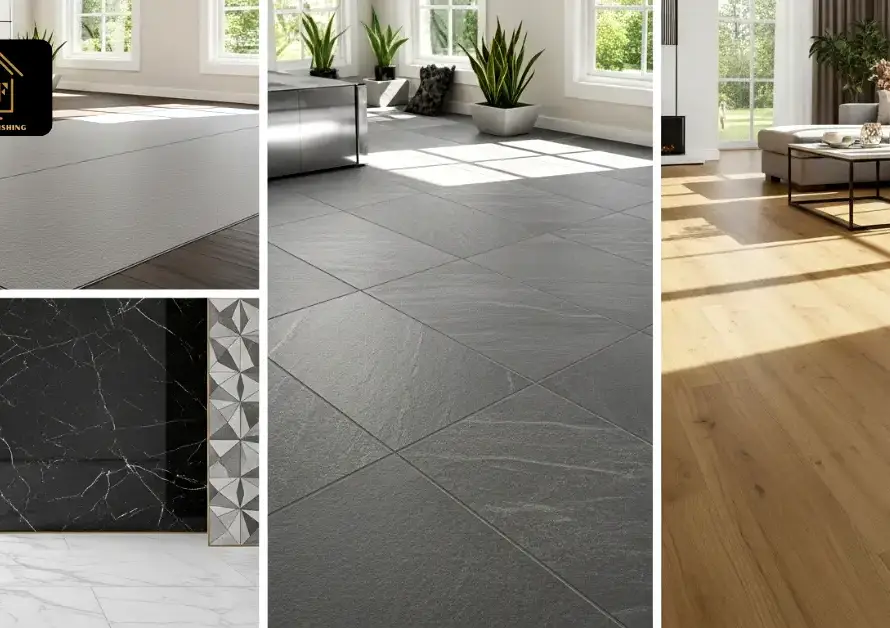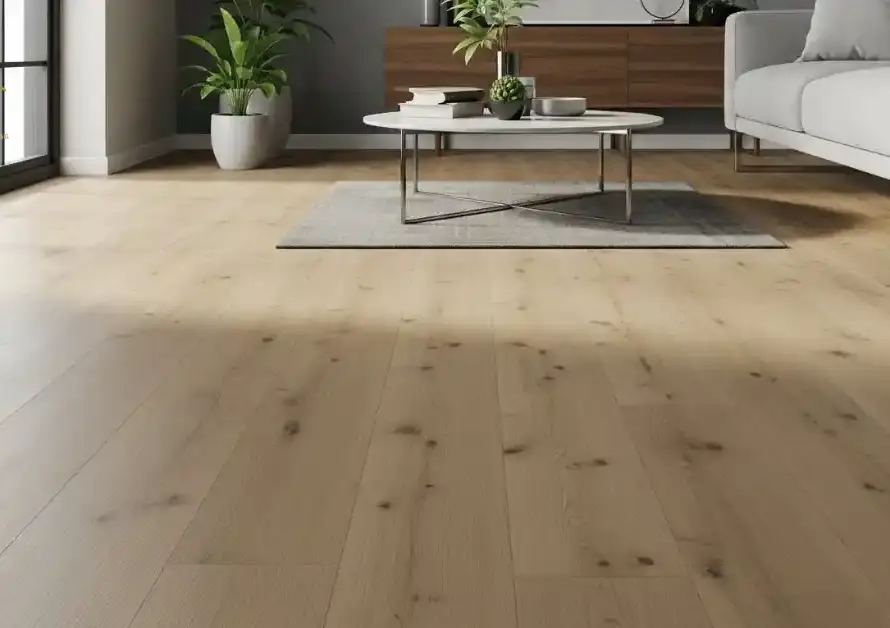When it comes to choosing the perfect flooring for your home in Singapore, two of the most common options are vinyl flooring and laminate flooring. Both choices are affordable and durable, but each has its advantages and features that may make one better suited to your needs. In this guide, we will compare vinyl vs laminate flooring to help you decide which one suits your home the best.
What Is Vinyl Flooring?
Vinyl flooring is a synthetic material made from polyvinyl chloride (PVC). It’s designed to be water-resistant and durable, making it a great choice for areas that experience high moisture levels, such as kitchens and bathrooms. There are several types of vinyl flooring: sheet vinyl, vinyl tiles, and vinyl planks.
Read the Complete guide on what is vinyl flooring.
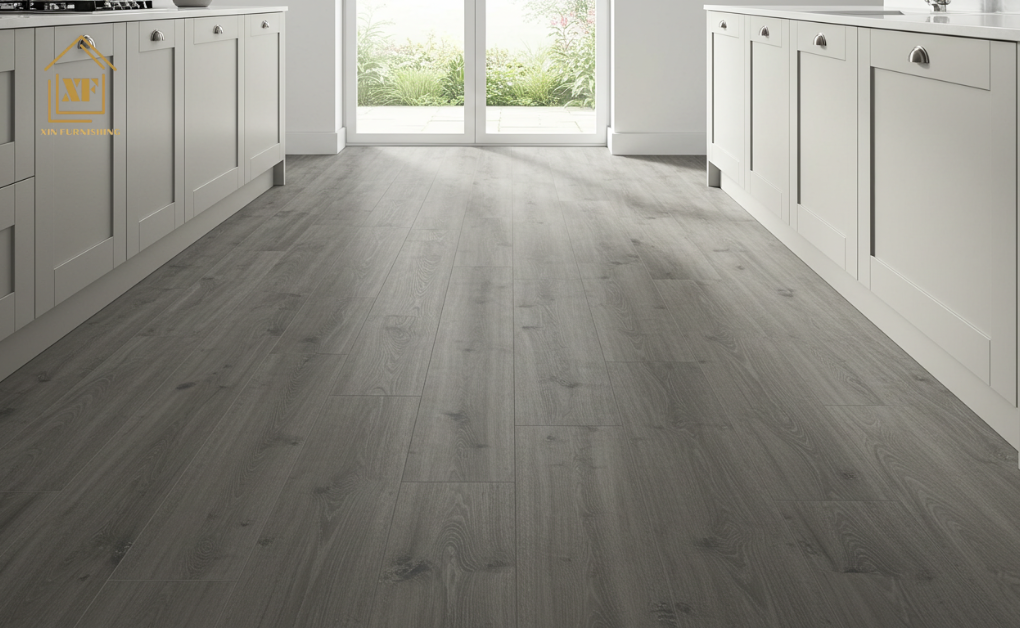
Why Choose Vinyl Flooring?
- Waterproof and Moisture-Resistant: Singapore’s humid climate makes vinyl flooring an excellent option. It can handle spills, humidity, and water better than most other flooring types.
- Affordable: Vinyl is typically less expensive than many other types of flooring, including wood and stone. This makes it a budget-friendly choice for homeowners.
- Variety of Designs: Vinyl is available in a range of styles, including wood, stone, and tile designs, making it easy to find something that matches your home’s decor.
- Easy Maintenance: Cleaning vinyl flooring is a breeze. You only need to sweep and mop occasionally to keep it looking fresh and clean. Unlike wood, you don’t need to worry about refinishing it.
Where Can You Use Vinyl Flooring?
Vinyl flooring is great for:
- Bathrooms: Its waterproof nature makes vinyl an excellent choice for bathrooms, where water exposure is frequent.
- Kitchens: Vinyl is durable enough to handle spills, stains, and high traffic.
- Living Rooms: The soft, cushioned feel of vinyl underfoot makes it an ideal choice for living rooms and other areas where comfort is a top priority.
What Is Laminate Flooring?
Laminate flooring is composed of layers of compressed fiberboard with a printed image layer that mimics the appearance of wood, stone, or other natural materials. It is then covered with a protective coating to make it durable and resistant to wear and tear. Laminate is popular in Singapore because it’s affordable and comes in a variety of styles.
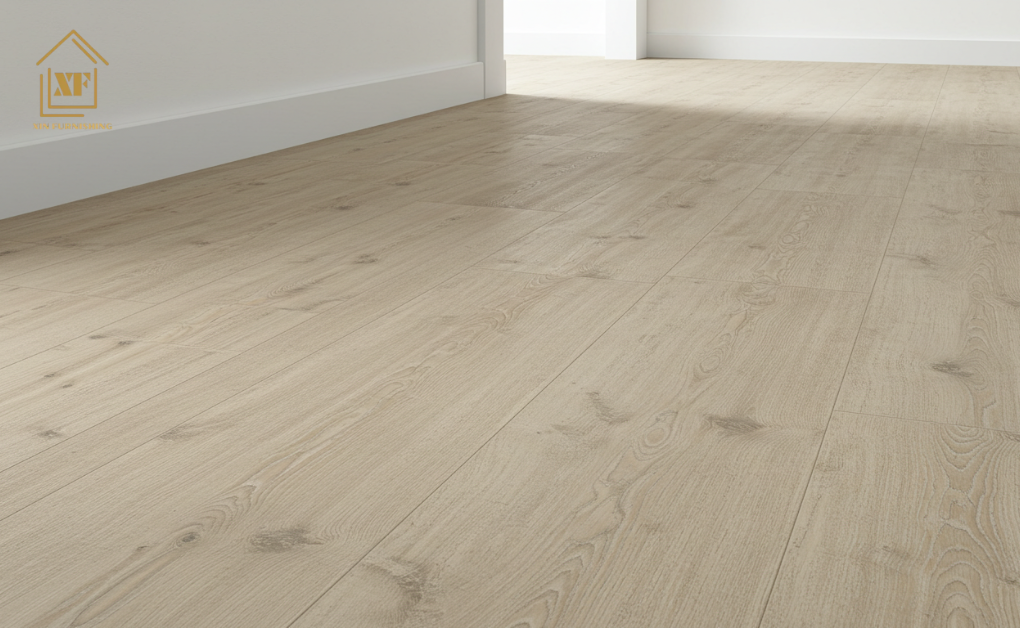
Why Choose Laminate Flooring?
- Affordable: Like vinyl, laminate is a cost-effective choice, often cheaper than hardwood or stone.
- Easy to Install: Laminate flooring often features a click-lock system that allows for easy installation, making it a great choice for DIY enthusiasts.
- Durable: Laminate is resistant to scratches, stains, and fading, making it ideal for high-traffic areas such as living rooms or hallways.
- Design Variety: Laminate flooring can mimic the look of real wood or stone, but it is not as customizable as vinyl.
Where Can You Use Laminate Flooring?
- Living Rooms: Laminate’s wood-like appearance makes it ideal for living rooms, bedrooms, and dining areas.
- Hallways and Entryways: It can withstand heavy foot traffic and is an excellent choice for corridors and entryways.
- Low-Moisture Areas: Laminate is best suited for dry areas, so avoid using it in bathrooms or kitchens where moisture exposure is high.
Vinyl Flooring vs Laminate Flooring: Key Differences
Now, let’s break down the major differences between vinyl vs laminate flooring so you can make a better choice for your home in Singapore.
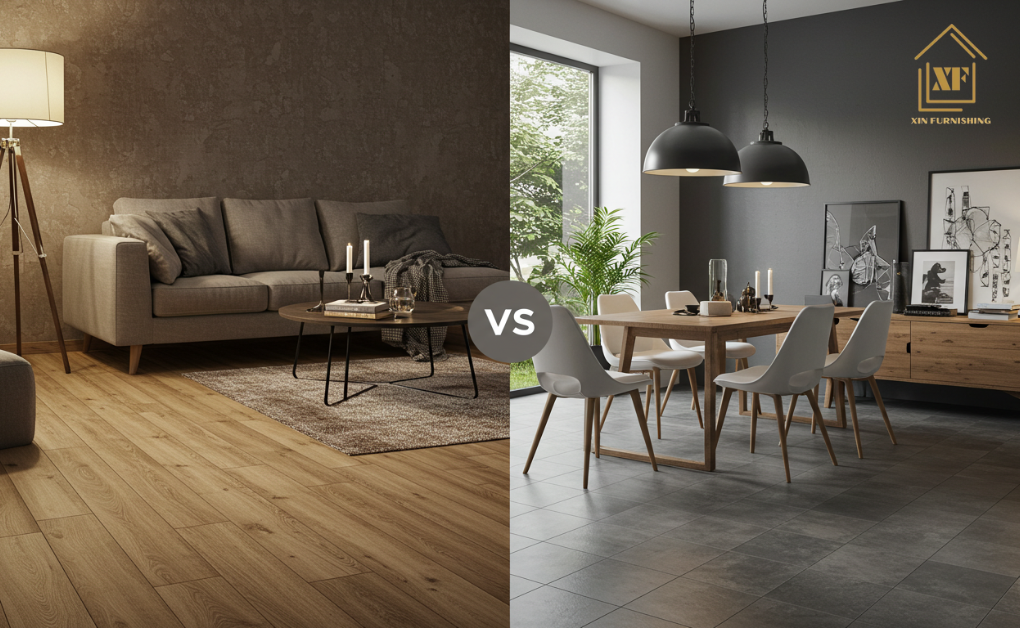
1. Water Resistance
- Vinyl flooring is waterproof, making it ideal for areas with high moisture levels, such as kitchens, bathrooms, and laundry rooms. No need to worry about spills or humidity.
- Laminate flooring, while moisture-resistant, is not fully waterproof. It may warp or swell if exposed to too much water, making it unsuitable for bathrooms or areas that tend to get wet.
2. Durability and Maintenance
- Vinyl flooring is tough and can withstand heavy foot traffic, scratches, and stains. It is also easier to maintain since you just need to sweep and mop.
- Laminate flooring is also durable, but it is more likely to show wear over time, especially in high-traffic areas. It is scratch-resistant but may not handle impacts or moisture as well as vinyl.
3. Comfort Underfoot
- Vinyl floors tend to be softer and more comfortable to walk on. They can be quieter, especially if installed with underlayment.
- Laminate flooring is more rigid and can sound louder when walked on, especially in larger rooms.
4. Aesthetic Appeal
- Vinyl flooring offers a wider range of designs that mimic natural materials like wood vinyl flooring, stone, or tile with a high level of realism. It’s available in various colors, patterns, and finishes.
- Laminate flooring also mimics wood and stone, but it might not look as authentic as vinyl. The designs are limited compared to the wide array available for vinyl.
Best Vinyl Flooring for Singapore Homes
In the tropical climate of Singapore, where high humidity is common, vinyl flooring is an ideal choice for many homeowners. Vinyl is resistant to moisture and can handle the temperature and humidity fluctuations typical of Singapore homes. If you’re looking to renovate your kitchen or refresh your living room, vinyl offers a durable and low-maintenance flooring solution.
When selecting vinyl flooring for Singapore homes, it’s important to choose a reliable supplier. Xinfurnishing offers a wide range of high-quality vinyl flooring options designed to withstand Singapore’s unique climate, ensuring durability and long-lasting performance. From contemporary designs to timeless classics, it provides expert advice and professional installation, helping you transform your home with ease.
Which Should You Choose: Vinyl vs Laminate Flooring?
Your decision between vinyl vs laminate flooring will depend on your needs and preferences. Here’s a quick guide to help you choose:
- Choose vinyl flooring if you need a waterproof, comfortable, and easy-to-maintain option. It’s perfect for bathrooms, kitchens, and high-traffic areas.
- Opt for laminate flooring if you want the look of wood or stone at a lower cost and don’t mind occasional maintenance. It’s great for living rooms and bedrooms that are not exposed to moisture.
Want a modern, elegant look? Explore our stone vinyl flooring for a sleek and durable option suited for Singapore homes.
Conclusion:
In the vinyl vs laminate flooring debate, both options offer great benefits, but vinyl flooring is often the better choice for Singapore homes due to its waterproof nature, easy maintenance, and comfort. If you’re looking for a more budget-friendly option that still mimics the look of wood or stone, laminate flooring could be the ideal solution. Whatever you choose, it’s important to go with a trusted vinyl flooring supplier in Singapore for top-quality products and expert installation. Either way, you’ll end up with a stylish and long-lasting flooring solution for your home.
FAQs
1. What are the disadvantages of vinyl plank flooring?
It is also hard to install and remove, and can look artificial compared to traditional hardwood floors. For those concerned about its eco-friendliness, vinyl plank flooring can emit volatile organic compounds (VOCs) and is challenging to recycle.
2. Is vinyl more waterproof than laminate?
Waterproof laminate offers decent water resistance; it may not be as impervious as vinyl plank flooring in extreme moisture-prone areas.
3. Why is vinyl flooring more expensive than laminate?
Vinyl flooring tends to be more expensive due to its waterproof properties, durability, and the wide range of designs available. Luxury vinyl planks (LVP), with more intricate designs and textures, also contribute to the higher price.
4. What is the cost difference between vinyl and laminate flooring?
Laminate flooring typically costs between $1 and $4 per square foot for standard options, with high-end versions reaching up to $5 per square foot. In comparison, vinyl flooring starts at $1 per square foot for basic styles, but luxury vinyl planks (LVP) can go up to $6 per square foot, depending on the quality and design.

